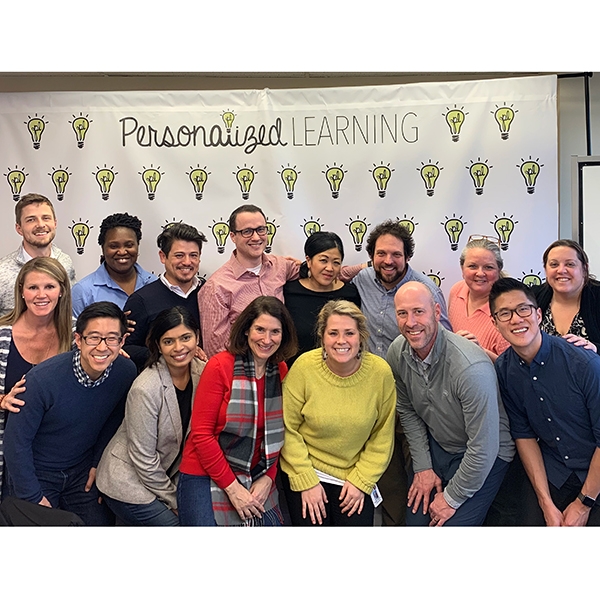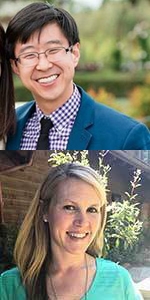
The Learning Accelerator’s (TLA) Innovation Directors Network (IDN) recently finished its second convening in Dallas, TX. Once again, we were inspired, energized, and humbled by the amazing group of 13 system-level leaders and innovators who attended. We enjoyed two packed days of exploring, connecting, sharing, learning, and observing some best practices at Dan D. Rogers Elementary. The IDN was intentionally kept small so participants were able to have rich discussions and collaborate meaningfully together, while also having the opportunity to identify key ecosystem challenges and take strides toward addressing those challenges in meaningful ways. In order to give additional insight into the network, we asked Jin-Soo Huh, Executive Director of Academic Innovation at Distinctive Schools, to tell us about his experience.
“I love that the IDN is a small, intimate group of practitioners working in the same space, tackling similar gnarly problems,” Jin-Soo said. “During these two-day sessions, I was able to learn from and connect with each participant on a deep level not seen in most professional development opportunities. Given that blended learning and personalized learning are relatively nascent fields, many of the practitioners are the sole force in their school systems pushing these initiatives, which can make the job lonely. Having a community of practice with people in analogous roles working on the same problem is incredibly powerful because the group can share best practices and tackle common pain points collectively.”
Building authentic connections between the members has always been one of our goals, and according to Jin-Soo, this goal has been hit. “The collaboration does not end when the convenings end. Since deep ties have been formed through formal and informal sessions during the convening, the group continues to stay connected virtually throughout the year by posing questions and sharing resources. I’ve not only learned from these colleagues in small groups but also shared meals with them, so it is a lot easier to reach out to them for help and know that I will have the community respond.”
In addition to these key relationships, we also asked Jin-Soo what he is most excited about going forward:
“There is a lot of potential for this group to not just impact their school systems, but other innovative schools implementing personalized and blended learning across the country. For example, onboarding teachers into these next-generation teaching and learning models surfaced as a pain point that many members were grappling with. Without having been part of the development of the models, how do schools orient teachers to these innovative models when most of their previous experience and education differed significantly? The group was able to share resources and best practices they have used in the past. TLA is then able to pull together the resources for the broader ecosystem to use and impact the community as a whole. It is also great that I am able to get resources from the other IDN members and share some of my practices in the process,” Huh said. “With our day-to-day jobs, it’s hard to package all of these resources into something usable for others. That’s why it is so powerful to have an organization like TLA support this group. They have the ability to take our practices and share them with the entire education community and help transform education for schools, students, and teachers around the country.”
As we continue to uncover and address ecosystem challenges across the country so leaders are able to push innovative work at scale, we ask you to email your thoughts or input to juliana.finegan@learningaccelerator.org. Stay tuned for additional updates and blogs from IDN members throughout the year that will share some of their best practices, challenges, and insights! View the full list of IDN members.

